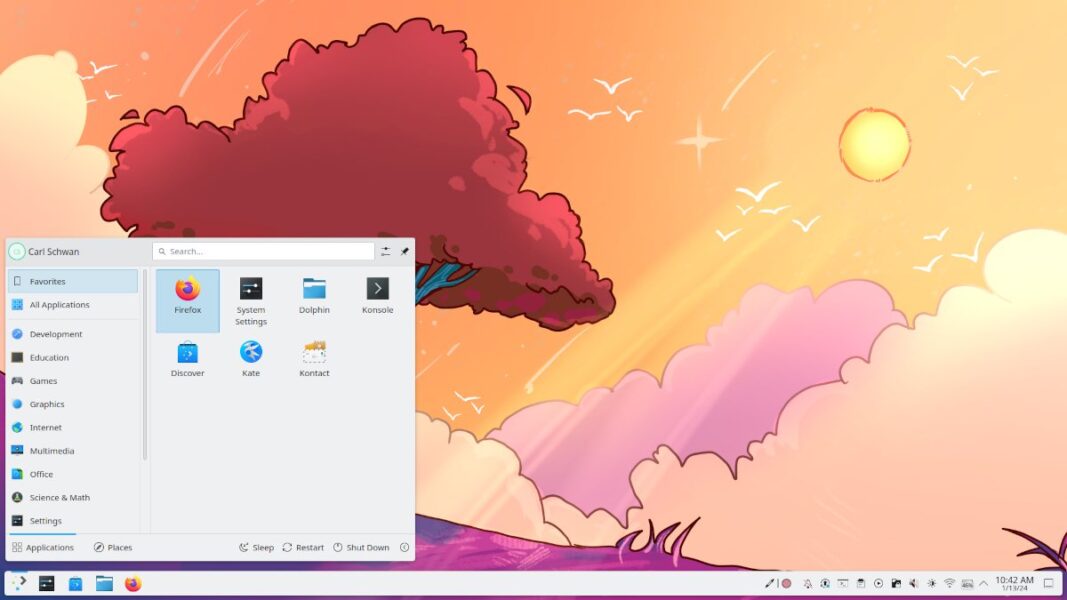KDE Plasma 6 published

Nearly ten (10!) years after the release of Plasma 5, the KDE project has published its successor on 28 February 2024. Plasma 6 is a completely overhauled version of the most important Linux desktop alongside Gnome, with its foundation transitioning from Qt 5 to Qt 6. Qt (pronounced “cute”) is – similar to Gtk in Gnome – the graphical framework of KDE Plasma and a double-edged sword: on one hand, Qt is the fundament for Plasma being considered the most powerful and customizable Linux desktop; on the other hand, Qt – unlike the open-source Gtk – was developed by the Norwegian company Trolltech as proprietary software, with an additional open-source license available. The ownership of Qt (currently: the Qt Group) has changed multiple times, and with each sale, the KDE project must once again negotiate with the respective owners regarding licensing policies.
While Qt 6 was released at the end of 2020, KDE developers took longer than expected to adapt their desktop and KDE applications to the new framework. Of course, they also aimed to avoid a fiasco like the one that occurred with the premature release of KDE 4 in 2008. They succeeded. With Plasma 6, KDE also manages to transition from X Server to Wayland for graphics output.
However, the visible changes on the user interface are minimal. The biggest point of contention was the introduction of double-click as the default action in Plasma 6. But what does controversy really mean? KDE users know best that everything, truly everything, on the desktop can be customized according to their preferences. It is fitting that KDE developers have also invested a lot of time in refining the visual appearance of the extensive system settings in Plasma 6.
Unfortunately, KDE Plasma is too late for the next LTS version of Kubuntu, which will be released in April 2024. If you still can’t wait to switch to Plasma 6, you should take a look at KDE Neon, which is also based on Ubuntu.
